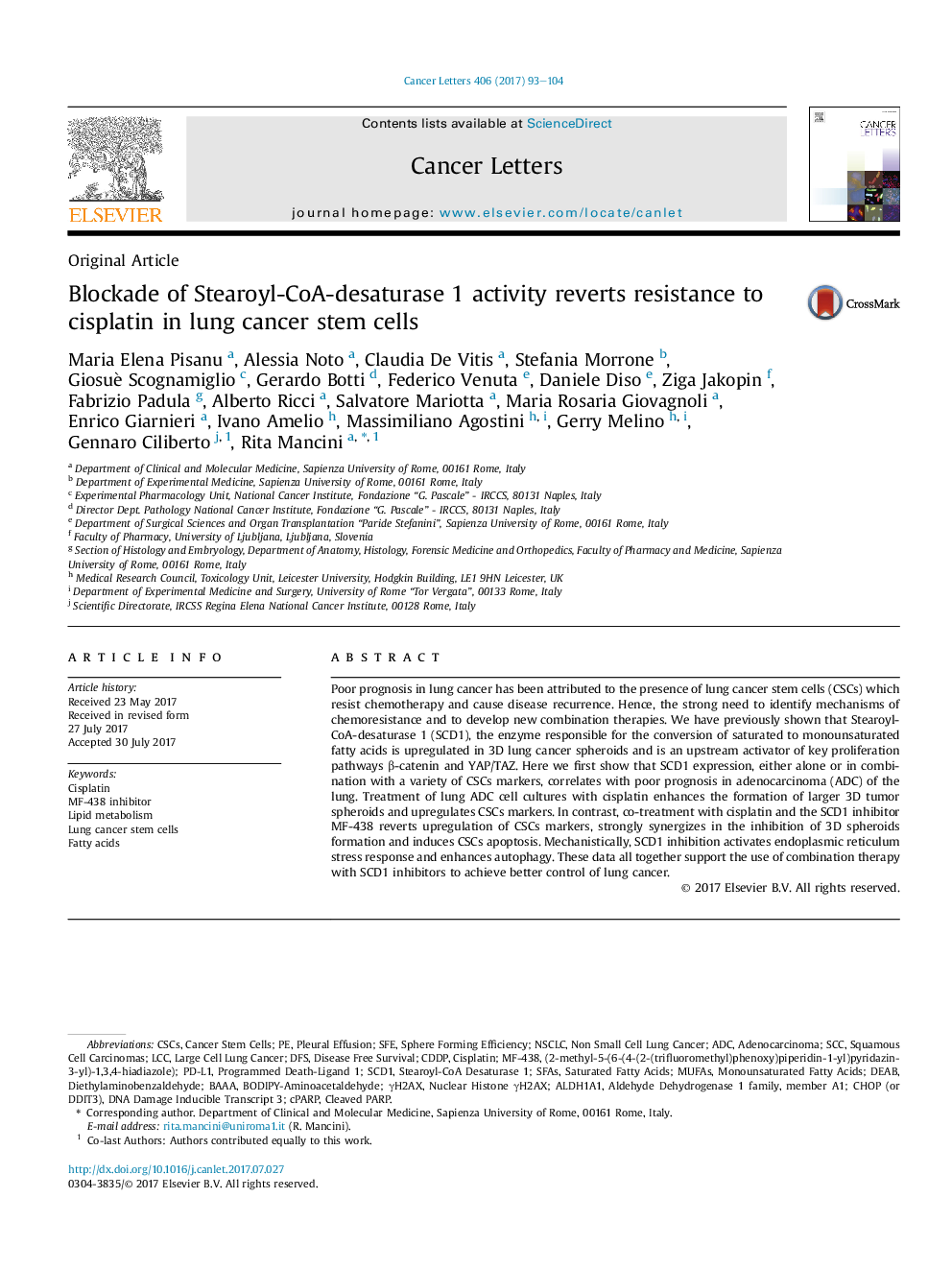| Article ID | Journal | Published Year | Pages | File Type |
|---|---|---|---|---|
| 5525358 | Cancer Letters | 2017 | 12 Pages |
â¢SCD1 upregulation combined with CSC markers predicts outcome in lung ADC at early stage.â¢Resistance to CDDP is reverted by SCD1 inhibition in lung CSC.â¢MF-438 combined with chemotherapy results in activation of UPR response and cell and apoptosis.
Poor prognosis in lung cancer has been attributed to the presence of lung cancer stem cells (CSCs) which resist chemotherapy and cause disease recurrence. Hence, the strong need to identify mechanisms of chemoresistance and to develop new combination therapies. We have previously shown that Stearoyl-CoA-desaturase 1 (SCD1), the enzyme responsible for the conversion of saturated to monounsaturated fatty acids is upregulated in 3D lung cancer spheroids and is an upstream activator of key proliferation pathways β-catenin and YAP/TAZ. Here we first show that SCD1 expression, either alone or in combination with a variety of CSCs markers, correlates with poor prognosis in adenocarcinoma (ADC) of the lung. Treatment of lung ADC cell cultures with cisplatin enhances the formation of larger 3D tumor spheroids and upregulates CSCs markers. In contrast, co-treatment with cisplatin and the SCD1 inhibitor MF-438 reverts upregulation of CSCs markers, strongly synergizes in the inhibition of 3D spheroids formation and induces CSCs apoptosis. Mechanistically, SCD1 inhibition activates endoplasmic reticulum stress response and enhances autophagy. These data all together support the use of combination therapy with SCD1 inhibitors to achieve better control of lung cancer.
